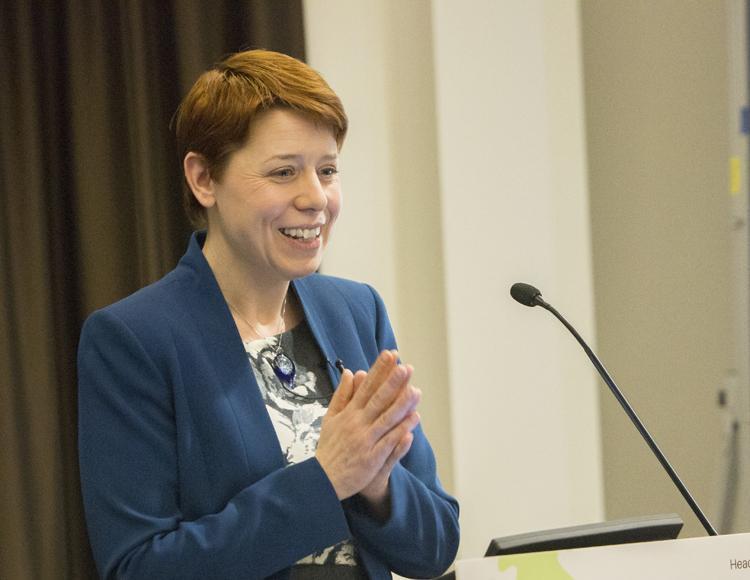Carry on regardless

Sometimes working with central Government feels akin to a carry on film.
Now, to be clear, I’m not suggesting that any ministers are engaged in naughty activity or that we have the equivalent of Sid James and Barbara Windsor in government. However, the advent of ministerial reshuffles in recent years has left it me rather cold. The ins and outs and shake it all abouts seem pleasantly distracting, indeed rather interesting in their way, but I’m not sure they add up to anything of any great import. The result is, when asked by ERSA members for our professional opinion on what the changes mean for them, I give the following advice: carry on regardless.
So why do I say this? After all, in DWP world, we have a new Secretary of State in Esther McVey; a new Minister for Employment in Alok Sharma; a new appointment just before Christmas as Minister for Disabled People, Health and Work, in Sarah Newton; plus a new Parliamentary Under Secretary in Kit Malthouse. Four new faces pitching up in a government department in one go would, at any other time, lead to a ripple of excitement across the relevant policy community. After all new ministers tend to want to do new things.
But not any more. The truth is this government has not had – and is not likely to develop – a burning sense of change the world, at least in the employment and skills space. Generally, ministers feel happy with the lower levels of unemployment that the country is experiencing, regardless of the under employment, low levels of pay and continued pockets of unemployment which exist in the country. Investment in contracted back to work support has been cut; adult education budgets have been cut; whilst it looks likely that we’re heading towards huge underspends in things such as the Flexible Support Fund and Apprenticeship Levy.
We know the Prime Minister is personally interested and committed to social mobility. I do not doubt her personal integrity in relation to this for one second. However, to date, this has not translated into a coherent plan across government or in individual government departments. ERSA very much welcomed the Race Disparity Audit for instance and the announcement that there will be a special focus on areas of higher unemployment amongst BAME groups. However, this must be now accompanied with plans, partnerships and money.
Similarly, ERSA welcomed the publication of the Careers Strategy prior to Christmas. This has been a long time coming. Careers advice has long been, as we all know, a Cinderella service in terms of political attention and, indeed, in money, despite the great delivery that has existed within the specialist careers sector. I am not sure, however, whether the strategy is going to translate into the sort of all age careers service which is going to fuel radical levels of upskilling in order to boost UK productivity and social mobility.
Far more interesting nowadays are the devolved administrations, combined authorities and regions. As I’ve said before in this column, it is there that we are seeing far more energy in terms of a focus on the employment, skills and economic development agenda. Youth unemployment does matter to these regional authorities and politicians, as do high areas of unemployment. The focus on place means a greater focus on people, rather than the world boiling down to a numerical calculation about value for money, return on investment, avoiding deadweight, etc, which too often feels like a mechanism for doing nothing.
It’s these areas that ERSA is therefore focusing on. On 7 February we’re running the market engagement for Greater Manchester’s next procurement – an ‘early help’ version of Working Well. So refreshing to have the idea of early intervention back on the table! In Scotland, we’re hosting a roundtable with the Minister for Employability and Training aimed at developing that wider agenda for the alignment of employment and skills. In London, our next meeting (22nd February) will look at the poverty map of London, following on from our December meeting focused on the wider agenda of skills for Londoners. And our West Midlands regional network is launching soon. Do get in touch if you want further information.
So we’re carrying on regardless and we’re urging members to do the same thing too. That’s not to say that there aren’t big ticket items on the desks of the incoming ministers or that the new faces aren’t decent people wanting to do the right thing. We had a long and close relationship with Esther McVey during her previous stint at Work and Pensions and I’m genuinely pleased that we have somebody who knows the agenda at the helm; whilst Sarah Newton is quite clearly really committed to the disability, health and work agenda. Their challenge will be to make the case for decent services and investment in areas where they know the country needs it against a continued tide of austerity and – of course – the all-encompassing focus on Brexit.
Kirsty McHugh, Chief Executive of the Employment Related Services Association (ERSA)












Responses